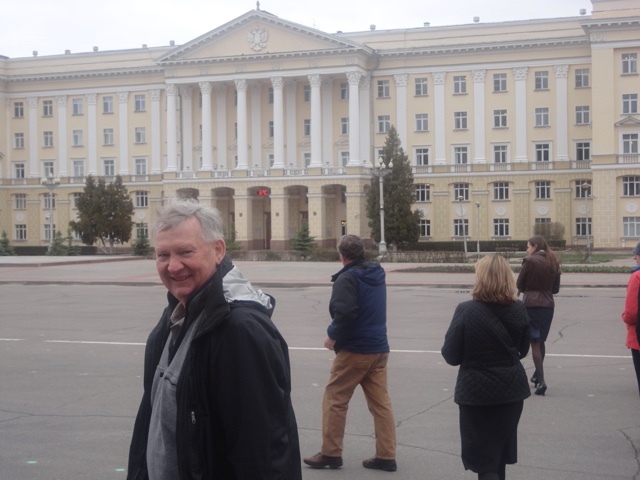Thoughts from an armchair theologian - insights from the intersection of faith and culture - perspective from the point.* Views expressed here are not necessarily those of White Memorial Presbyterian Church.
"It seems clear that humans cannot significantly reduce or mitigate the dangers inherent in their use of life by ccumulating more information or better theories or by achieving greater predictability or more caution in their scientific and industrial work. To treat life as less than a miracle is to give up on it." Wendell Berry
"Do not be afraid, my little flock, for it is the Father's good pleasure to give you the kingdom." Luke 12:32
Friday, April 15, 2016
Smolensk - Day 2
Thursday, April 14, 2016
Day 4 - Moscow to Smolensk
Wednesday, April 13, 2016
Russia Report - Day 3
Tuesday, April 12, 2016
Russia Travel Blog - Days 1 and 2
Wednesday, March 30, 2016
Faith, Politics, and Complexity in the Post Easter Season
Tuesday, March 22, 2016
Easter -- All the Reasons to Love
Tuesday, March 15, 2016
Mortification and Vivication
Do you recognize those words? They are quite old and quite out of fashion. But they represent a very important and very old theological idea and practice. “Mortification” comes from the same root for the words “mortified” and “mortal.” It refers to things which are dying or which need to die. “Vivification” is the opposite. From the same root as the word “vital,” it means to come alive.
The theological and spiritual practices of mortification and vivification intersect in a complex but critical transaction. What is it within us that needs to die in order that Christ might live within us? How can there be any room for the grace, mercy and love that Jesus offers us if we are consumed by greed, lust, envy, or shame, guilt and suffering? How can Christ live in our hearts if there is no room for him to take up lodging?
The book of 1 Peter 2:24-25 uplifts this twinning of mortification and vivification for us: “Jesus himself bore our sins in his body on the cross, so that, free from sins, we might live for righteousness; by his wounds you have been healed. For you were going astray like sheep, but now you have returned to the shepherd and guardian of your souls.” Romans, chapter 6 in its opening verses does the same: “What then are we to say? Should we continue in sin in order that grace may abound? By no means! How can we who died to sin go on living in it?”
Part of living in the gracious light of our savior is spiritually dying to all things which are consuming our energies. The first rule of faith is letting go of whatever we are clinging to that distracts us from the new life which God is freely offering.
So as you read today, what practices, what distractions, what sins need to end in order that the newness of Christ might live within you? What room do you need to make for the Savior? As you answer these questions, know that you are not alone. None of us are solitary in our need to confess our sin. Nor are we solitary in our need for grace. Mortification and vivification are necessary for all of us.
Living and dying—spiritually dying to deadly things in order that we might spiritually live—we belong to God. And this belonging is an invitation to a life more wonderful than other types of lives we might imagine. As we move to Holy Week, we have a perfect opportunity to consider the gift that God offers us in the Christian life. Will we embrace it?









































